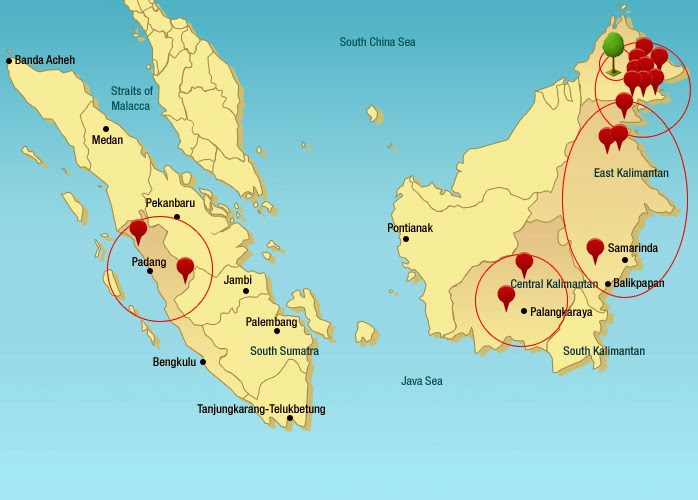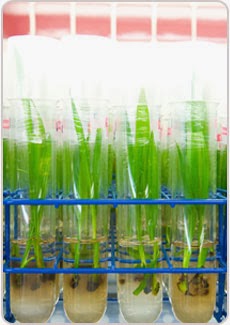-
Impressive FFB production growth
- 9M13 FFB production grows 34% YoY
- FFB CAGR of 30% from 2008-2012
- Estimated FFB CAGR of 20% from 2012-2015
-
Young age profile of trees
- About 70% trees are <7 years old
- About 30% are young mature between 4-7 years old
-
Huge unplanted land
- Total plantation land at 135,800 ha, about 90,800 ha (67%) unplanted
- Plan new planting of ~4000 ha/year
-
Wakuba ramets
- Oil palm ramets from TSH's own research, which is said to increase oil yield per hectare up to 10 MT/ha (average 4.5 MT/ha in Malaysia)
- Started planting Wakuba ramets since 2012 in Indonesia, results expected from 2016
-
Aggressive expansion
- Continue to acquire new plantation land
- Acquired 5,180ha in East Kalimantan in Mac 2013
- Latest in Dec 2013, acquired 60% stake of 26,294ha in Sg Kalabakan in Sabah, in which only 2,979ha (11%) are planted with 2-3 years trees
Good Articles to Share
TSH: Wakuba To Make The Difference? - Bursa D
Tan KW
Publish date: Wed, 08 Jan 2014, 10:19 AM
Wednesday, 8 January 2014
In year 2014, plantation is one of the sector to watch. Many analysts seem to be optimistic about plantation stocks as the CPO (crude palm oil) price is believed to trend upwards due to current low inventory level.
There are many heavyweight and small caps plantation stocks in Bursa Malaysia. How to choose the best to invest in?
From my observation, TSH is one of the company which stands out in 2013, mainly due to the reasons below:
About one year ago in the end of Dec 2012, TSH's gearing stood at an uncomfortable 1.07x. This is mainly due to its extensive new planting and acquisition strategy since 2006.
To reduce its gearing, TSH has recently sold its 16% stake in Pontian United Plantations, which it failed to acquire wholly in 2011, to Felda Global Venture for RM196mil which generates a net gain of RM85.3mil. Besides, TSH also carried out a few rounds of private placement in 2013.
The rise in cash reduces TSH's gearing to about 0.55x, until its recent announcement in Dec13 to acquire 60% stake in Sg Kalabakan estate for RM180mil. This deal will likely to increase the gearing to 0.7x when completed.
After the new acquisition, TSH total plantation land area will increase to 135,803ha. It has 31,242ha in Malaysia (Sabah) and the rest are in Kalimantan & Sumatera. The unplanted area stands at a huge 90,835ha (67%).
TSH plantations areas
As mentioned earlier, more than 70% of TSH's planted trees are considered young and below 7 years old. As at end of June 2013, about 30% of its planted area consists of trees between 4-7 years old. That means roughly 40% 0-3 y/o, 30% 4-7 y/o and 30% above 7 y/o.
From 2008 to 2012, its FFB production increases from 198k MT to 400k MT (30% growth per annum). It is expected to achieve 537k MT in 2013.
What do all this mean?
For its plantation in Indonesia, it is estimated that 4,000ha will come into maturity in 2013, and another 3,000ha will follow in 2014.
TSH will also plant new trees at 3,000-4,000ha a year, probably increase to 10,000ha a year in the future.
Furthermore, its Wakuba trees which are expected to deliver much better oil yield (10 tonnes CPO/hectare), will start to deliver significantly from year 2016. This figure reported by MIDF is exceptionally high, given that Malaysia's average CPO/hectare is just 4.5 tonnes/ha and United Plantations, which is known for its high oil yield, registered just 5.21 tonnes/ha in 2012.
If this is true, then 100ha in TSH will be equal to 200ha in United Plantations. This translates into 100% higher revenue or 100% lower cost for TSH!
The research on Wakuba ramet has started since 2005 with RM40mil invested. TSH targets to produce 1.5mil ramet by 2015.
Wakuba ramets
TSH's FFB production grew 6% from 399,600 MT in 2011 to 424,700 MT in 2012.
However, I could not find the data of FFB per hectare for TSH. Its OER (oil extraction rate) is 24% (Kalimantan) and 21-22% (Sabah), which should be very good figures.
TSH has 6 mills (3 in Indonesia, 3 in Sabah) with a total capacity of 2mil tonne FFB per year. It aims to achieve a capacity of 3mil tonne capacity by year 2018.
TSH has also ventured further downstream into refinery via a 50/50 JV with Wilmar International since 2007. The TSH-Wilmar palm oil refinery in Sabah has a capacity of 2,700 tonnes/day & kernel crushing 600 tonnes/day.
Besides oil palm plantation, TSH also has rubber plantation in which it plans to build up to 10,000ha.
Other than plantation, TSH has a 67%-owned listed subsidiary Ekowood which manufactures hardwood flooring. Besides, it also has factories that manufactures cocoa products, pulp & paper. Nevertheless, all these will not contribute significantly to the group compared to oil palm.
In 1997, TSH was awarded a 100-year concession to carry out forest rehabilitation, environment conservation & industrial tree planting on 123,000ha of forest land in Ulu Tungud, Sabah.
TSH financial highlights 2008-2012
Due to the gain of RM85.3mil from disposal of Pontian United stake, TSH's FY13Q3 net profit surged 380% QoQ from RM17.3mil to RM83.3mil despite a 16% drop in revenue to RM219.4mil.
Without this special gain plus RM51.1mil unrealized loss in foreign exchange in the first 9 months of 2013 (RM43.7mil exchange loss in FY13Q3 alone), TSH's 9M13 net profit should be at RM86.2mil (from MIDF report), which is 87% higher YoY compared to 9M12 of RM46mil. This is achieved despite a still much depressed CPO price since early 2012 (RM2,239 in Q3FY13 vs RM2,692 in Q3FY12).
For 9M13, FFB production increases 34% to 379,673MT, while CPO production increased by 19% to 224,101MT.
One concern of TSH is its gearing. After FY13Q3 (Sep13), it has a total borrowing of RM996.2mil in which almost half is current. Its cash stands at only RM53.3mil. Debt/Equity ratio is about 0.9x at that point.
Though the acquisition of Sg Kalabakan estate will increase the debt, TSH is expected to generate impressive operating cash flow in the future to reduce its gearing.
TSH gave 2.5sen dividend (RM20.8mil) for its FY2012, which is consistent with its dividend payout policy of 20-30% (27%). At current share price near RM3, the dividend yield is pathetic.
TSH-Wilmar Refinery Plant
If TSH can achieve a net profit of about RM20mil in its FY2013Q4, then its overall net profit for FY2013 should be around RM106mil (excluding special gain/loss). With 903.8mil shares now, its estimated EPS will be 11.7sen.
At this EPS, current share price of close to RM3 seems to be quite high. However, future earning ability of TSH is strong.
Overall, I think TSH is a good plantation company with quite a lot of excitement ahead, especially with its exclusive & exceptionally high yield Wakuba ramets.
Is it the best? I'm not sure as I haven't do enough comparison with others and I'm not too familiar with plantation sector.
There seems to be other diversified companies which have great potential in oil palm plantation such as MKH, Jaya Tiasa, Ta Ann etc.
Thus, I will put TSH into my stock alert list and will keep monitoring its progress.
http://bursadummy.blogspot.com/2014/01/tsh-wakuba-to-make-difference.html
Related Stocks
| Chart | Stock Name | Last | Change | Volume |
|---|
More articles on Good Articles to Share
Colony Capital Founder Tom Barrack backs Trump’s cabinet picks #shorts #politics
Created by Tan KW | Nov 15, 2024
Trump will make the institutions successful forever, Kash Patel says
Created by Tan KW | Nov 15, 2024
Discussions
Be the first to like this. Showing 1 of 1 comments




























okdoke
Hello TanKW,
I read your article with deep interest. I'm new in investment and have some queries...
Q1.Which is better ramet AA Hybrida 1S ( not sure if this ramet/offspring from United Plantation ) or Wakuba?
Q2. What is the best management to increase planting area for any plantation company?
1.take more debt ?
2.start planting and sell the land just like TSH did for the Pontian land,
3. Monetize the immatured land like Boustead (LTAT). Similar chalengge for Jtiasa? thanks in advance
thanks in advance
2014-01-08 11:32